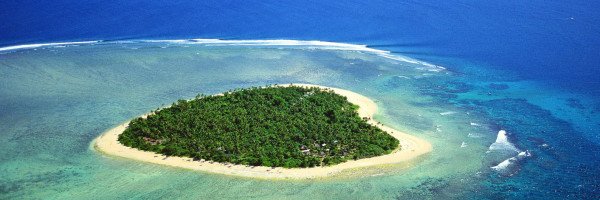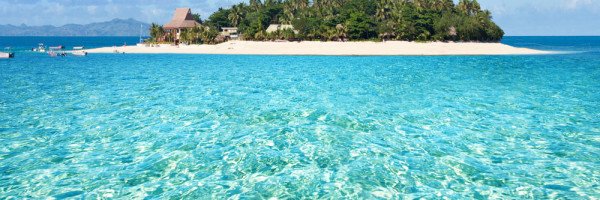The Significance of Indigenous Practices in Fiji’s Eco-Tourism
Indigenous practices in Fiji are vital to the country’s eco-tourism framework. These practices not only enhance the tourist experience but also play a crucial role in conserving the natural environment. The Fijian way of life is deeply intertwined with nature, reflecting a sustainable approach that has been passed down through generations. Indigenous communities engage in traditional fishing, farming, and land management techniques that promote biodiversity and ecological stability. For instance, sustainable fishing practices help maintain fish populations, ensuring that the marine ecosystem remains balanced. Tourists visiting the Fiji Islands can participate in these activities, gaining a deeper understanding of the local culture while supporting conservation efforts. Moreover, these indigenous practices serve as a model for eco-tourism in other regions, such as New Zealand, where the Māori culture emphasizes sustainability and respect for the land. By observing and learning from Fiji’s indigenous practices, New Zealand can further enhance its eco-tourism initiatives, creating a more enriching experience for visitors.Cultural Heritage and Eco-Tourism: A Symbiotic Relationship
The relationship between cultural heritage and eco-tourism in Fiji is symbiotic, with each element enhancing the other. Indigenous practices often include storytelling, traditional crafts, and rituals that are integral to Fijian identity. Eco-tourism initiatives that incorporate these elements provide tourists with an authentic experience while preserving cultural heritage. For instance, visitors can engage in traditional weaving workshops or participate in cultural ceremonies, which fosters a greater appreciation for Fijian customs. In New Zealand, similar initiatives can be observed through Māori cultural experiences that allow tourists to engage with the community. By incorporating indigenous practices into eco-tourism, both Fiji and New Zealand can create a rich tapestry of experiences that celebrate cultural diversity while promoting environmental sustainability.Conservation Practices Rooted in Tradition
Conservation in Fiji is often rooted in indigenous practices that have been employed for centuries. Traditional ecological knowledge encompasses a holistic understanding of local ecosystems, guiding sustainable land and resource management. For example, the practice of ‘taboo’ or ‘takia’ areas, where certain resources are protected from harvesting, has allowed Fijian communities to manage their natural resources effectively. By integrating these traditional conservation practices into eco-tourism, visitors can learn about the importance of biodiversity and the role they can play in protecting it. This model not only enhances the tourist experience but also empowers local communities to take charge of their environmental stewardship. New Zealand could adopt similar models, encouraging tourists to participate in community-led conservation efforts, thereby enriching the eco-tourism experience while fostering a sense of responsibility towards nature.The Economic Impact of Indigenous Eco-Tourism
Indigenous eco-tourism in Fiji contributes significantly to the local economy, providing income and employment opportunities for communities. By promoting authentic experiences that highlight indigenous practices, tourists are more likely to spend money on local crafts, food, and guided tours. This economic benefit helps sustain traditional lifestyles while incentivizing the preservation of cultural heritage and natural resources. In New Zealand, the economic model of indigenous eco-tourism can be further developed by emphasizing Māori tourism experiences that showcase traditional practices and sustainable resource management. By investing in these initiatives, both Fiji and New Zealand can create a sustainable tourism framework that not only benefits the economy but also promotes cultural understanding and environmental preservation.Challenges Facing Indigenous Practices in Eco-Tourism
Despite the advantages of incorporating indigenous practices into eco-tourism, challenges persist. Issues such as commercialization, cultural appropriation, and environmental degradation can undermine the authenticity of indigenous experiences. In Fiji, there is a risk that eco-tourism may prioritize profit over the preservation of cultural practices and natural ecosystems. To counteract these challenges, it is essential for both local communities and tourists to engage in respectful and responsible tourism practices. Educating visitors about the importance of supporting local initiatives and understanding the value of cultural heritage can help mitigate these risks. New Zealand has faced similar challenges, where the balance between tourism growth and cultural preservation is delicate. By fostering a collaborative approach, both Fiji and New Zealand can address these challenges effectively, ensuring that eco-tourism remains a force for good.Community Involvement and Empowerment
Community involvement is crucial for the success of indigenous eco-tourism in Fiji. Empowering local communities to lead eco-tourism initiatives allows them to share their cultural heritage authentically while ensuring that profits benefit the community. Initiatives that support local artisans, chefs, and guides contribute to economic resilience and cultural preservation. In New Zealand, community-driven tourism models that emphasize Māori leadership can offer valuable insights into how to effectively engage indigenous communities in eco-tourism. By fostering partnerships with local communities in both Fiji and New Zealand, eco-tourism can create a more equitable and sustainable tourism industry that honors indigenous practices and promotes cultural exchange.Future Directions for Fiji’s Eco-Tourism
The future of eco-tourism in Fiji lies in the continued integration of indigenous practices and sustainable development. As global awareness of environmental issues grows, tourists increasingly seek authentic experiences that align with their values. By promoting indigenous practices, Fiji can position itself as a leader in eco-tourism, attracting visitors who are passionate about conservation and cultural heritage. New Zealand can learn from Fiji’s approach by further developing its eco-tourism offerings that highlight Māori culture and sustainable practices. Collaborative efforts between governments, local communities, and the tourism industry can pave the way for innovative eco-tourism initiatives that respect indigenous knowledge while fostering economic growth and environmental stewardship. By embracing this path, Fiji can ensure that its eco-tourism sector thrives while preserving its unique cultural and natural heritage.FAQs
What is eco-tourism in Fiji?
Eco-tourism in Fiji refers to responsible travel to natural areas that conserves the environment and improves the well-being of local communities. It emphasizes the importance of preserving the rich biodiversity and cultural heritage of Fiji while providing tourists with authentic experiences that connect them to the land and its people.
How do Indigenous practices contribute to eco-tourism in Fiji?
Indigenous practices play a crucial role in Fiji’s eco-tourism by promoting sustainable methods of land use and resource management. These practices include traditional farming, fishing, and cultural rituals that not only help preserve the environment but also enhance the visitor experience through cultural education and participation.
What are some examples of Indigenous practices in Fiji’s eco-tourism?
Examples of Indigenous practices in Fiji’s eco-tourism include the use of traditional fishing techniques that protect marine life, organic farming methods that sustain local ecosystems, and cultural ceremonies that engage visitors while showcasing Fijian heritage. These practices ensure that tourism development aligns with the values and traditions of Indigenous communities.
How does eco-tourism help preserve Fijian culture?
Eco-tourism helps preserve Fijian culture by providing a platform for Indigenous communities to share their traditions, stories, and customs with visitors. This cultural exchange fosters appreciation and respect for Fijian heritage, encouraging both locals and tourists to value and maintain these practices for future generations.
What are the benefits of combining eco-tourism and Indigenous practices in Fiji?
The combination of eco-tourism and Indigenous practices in Fiji creates a sustainable model that benefits both the environment and local communities. It provides economic opportunities for Indigenous people, promotes conservation efforts, and enhances the overall visitor experience by offering authentic, culturally rich activities that highlight Fiji’s unique heritage.
Are there any challenges faced by Indigenous communities in eco-tourism?
Yes, Indigenous communities in Fiji face challenges in eco-tourism, such as the risk of cultural commodification, inadequate representation in tourism decision-making, and the potential for environmental degradation caused by unregulated tourist activities. Addressing these challenges requires collaboration between local communities, government, and tourism operators to ensure that eco-tourism practices are genuinely sustainable and respectful of Indigenous rights.
How can tourists support Indigenous eco-tourism initiatives in Fiji?
Tourists can support Indigenous eco-tourism initiatives in Fiji by choosing to stay in locally-owned accommodations, participating in cultural tours led by Indigenous guides, and engaging in sustainable activities that respect the environment. Additionally, travelers can educate themselves about Fijian culture and support local artisans and businesses, contributing to the preservation of both culture and nature.
References
- Fiji Islands Official Tourism Website – This site provides comprehensive information about Fiji’s eco-tourism initiatives, including the integration of indigenous practices and cultural preservation in tourism.
- Indigenous Knowledge and Eco-Tourism in Fiji – A research article discussing how indigenous practices contribute to sustainable tourism development in Fiji.
- Eco-Tourism and Indigenous Communities in Fiji: A Case Study – This journal article explores the relationship between eco-tourism and indigenous communities, highlighting success stories and challenges.
- Indigenous Peoples of Fiji: Eco-Tourism and Sustainability – This article from Cultural Survival discusses the role of indigenous peoples in promoting sustainable eco-tourism practices in Fiji.
- The Role of Indigenous Practices in Eco-Tourism: Perspectives from Fiji – A scholarly article examining how traditional knowledge and practices influence eco-tourism strategies in Fiji.







